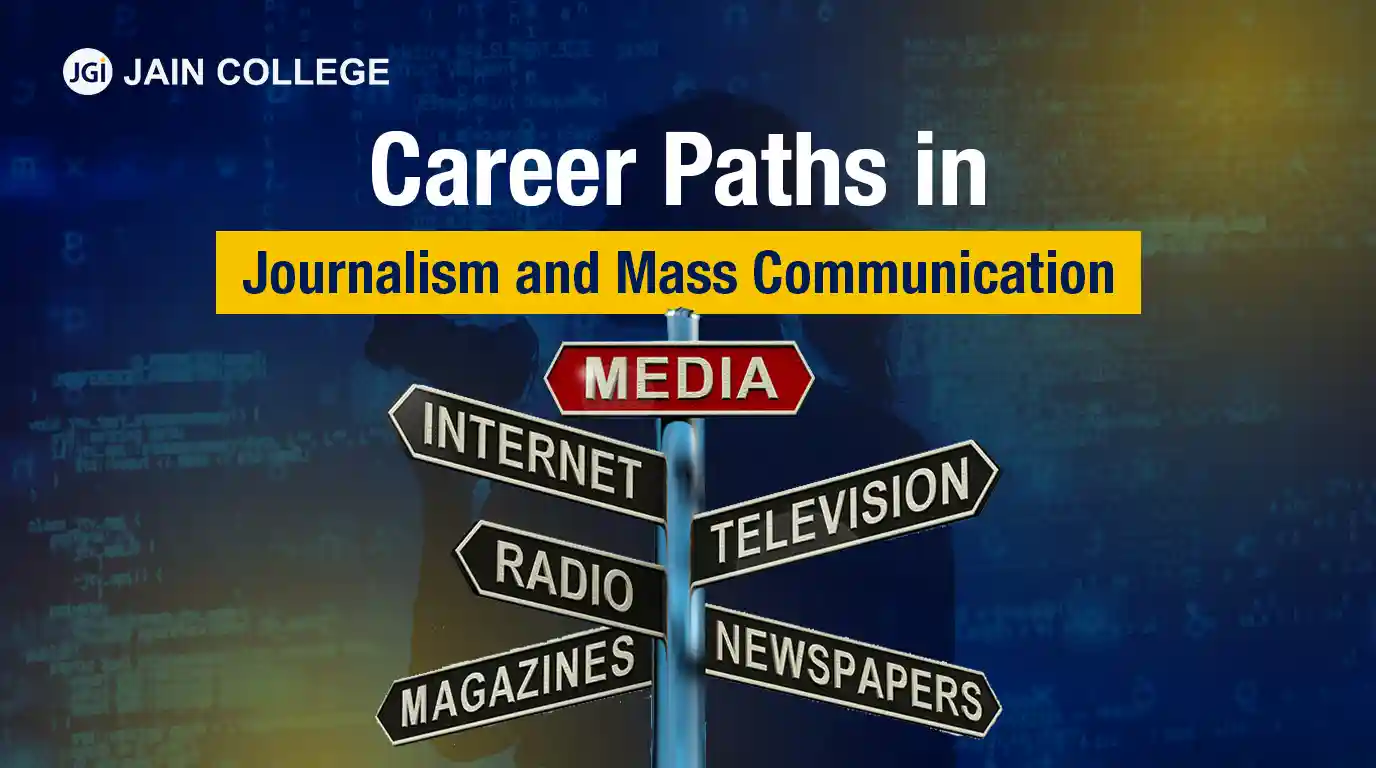
Journalism and Mass Communication encompass the art of gathering, creating, and disseminating information to various audiences. Journalism typically focuses on delivering news through various mediums like print, digital, and broadcast. It involves investigative reporting, feature writing, and storytelling that informs and educates.
Mass Communication, on the other hand, includes a broader range of activities such as advertising, public relations, corporate communications, and entertainment media production. While journalism keeps the public informed about current events, mass communication seeks to engage, persuade, or entertain. These fields play a pivotal role in shaping public discourse, influencing opinions, and connecting diverse audiences globally.
Opting for a career in Journalism and Mass Communication opens doors to exciting and dynamic opportunities. This field is for those who are passionate about storytelling, creative expression, and influencing public opinion. Here's why it’s an excellent choice:
If you thrive under pressure and enjoy interacting with people, this career can be highly rewarding, both intellectually and financially.
Succeeding in journalism and mass communication requires a unique combination of skills. Here's a closer look at the must-haves:
Print journalists work for newspapers, magazines, and journals. Their job involves writing in-depth stories, features, and editorials. Although digital media has grown rapidly, print journalism retains its importance, especially for investigative pieces and in-depth reporting. It offers roles like reporters, editors, and columnists.
Broadcast journalists deliver news via television and radio. They cover live events, host discussions, and report breaking news. This path demands excellent verbal communication skills, confidence in front of a camera, and the ability to think on your feet. Roles include news anchors, correspondents, and producers.
As more audiences consume content online, digital journalism is booming. It includes writing for websites, creating video reports for platforms like YouTube, and managing social media news pages. The key advantage here is the reach and engagement with global audiences.
PR specialists act as the bridge between organisations and the public. They manage public perception by creating press releases, organising events, and liaising with media outlets. With companies focusing on branding, PR professionals are in high demand.
Advertising involves crafting compelling campaigns to promote products and services. Professionals in this domain work as copywriters, account managers, or creative directors. The work requires a mix of creativity, market research, and strategic planning.
This field allows individuals to bring stories to life through direction, cinematography, and editing. Roles in this sector vary from scriptwriters to directors and technical specialists like sound engineers and editors.
Starting a career in these fields requires a combination of education and practical experience.
Some top undergraduate courses to consider:
Postgraduate programs allow for specialisation and career advancement:
Technology has revolutionised the way content is created and consumed. Here’s how:
The earning potential varies significantly depending on the role, location, and experience:
| Career Path | Entry-Level Salary | Experienced Professionals |
| Print Journalist | ?3,00,000 - ?5,00,000/year | ?8,00,000+ per year |
| Broadcast Journalist | ?4,00,000 - ?7,00,000/year | ?10,00,000+ per year |
| PR Specialist | ?3,50,000 - ?6,00,000/year | ?12,00,000+ per year |
| Advertising Executive | ?4,00,000 - ?6,50,000/year | ?15,00,000+ per year |
A BA in Journalism or Mass Communication provides the foundational skills needed.
Skills in writing, research, and storytelling are transferable, making the transition smoother.
Absolutely not! While traditional roles are evolving, digital journalism is thriving.
Stay updated with trends, master creative tools, and network extensively.
Meeting tight deadlines while maintaining accuracy is one of the biggest challenges.

JAIN PU College, a part of the renowned JGI Group, is committed to empowering students with quality education.
Beyond academics, the college ensures its online content reflects the same standard of excellence. Every blog and article is meticulously vetted and proofread by subject matter experts to ensure accuracy, relevance, and clarity. From insightful educational topics to engaging discussions, JAIN PU College's content is crafted to inform, inspire, and add value to its readers, reflecting the institution's commitment to intellectual growth and innovation.
View all Blogs